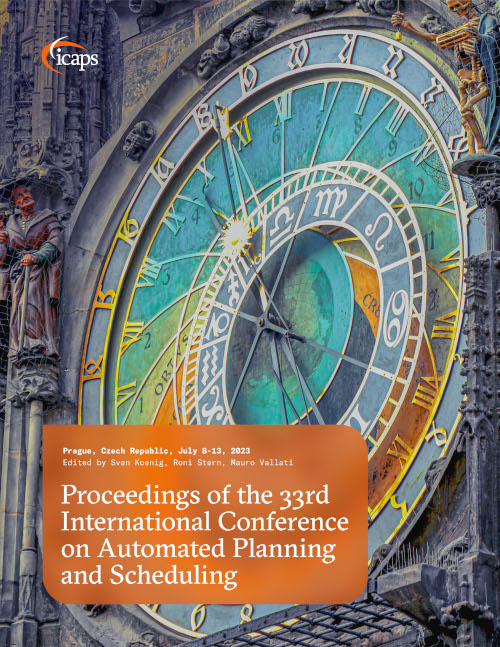Grounding Planning Tasks Using Tree Decompositions and Iterated Solving
DOI:
https://doi.org/10.1609/icaps.v33i1.27184Keywords:
Classical planning techniques and analysisAbstract
Classical planning tasks are commonly described in a first-order language. However, most classical planners translate tasks by grounding them and then rewriting them into a propositional language. In recent years, the grounding step has become a larger bottleneck. In this work, we study how to improve it. We build on top of the most common grounder for planning tasks which uses Datalog to find all reachable atoms and actions. Inspired by recent progress in lifted planning, database theory, and algorithmics, we develop a new method to ground these Datalog programs. Our algorithm can ground more instances than the baseline, and most tasks it cannot ground are out of reach from any ground planner.Downloads
Published
2023-07-01
How to Cite
Corrêa, A. B., Hecher, M., Helmert, M., Longo, D. M., Pommerening, F., & Woltran, S. (2023). Grounding Planning Tasks Using Tree Decompositions and Iterated Solving. Proceedings of the International Conference on Automated Planning and Scheduling, 33(1), 100-108. https://doi.org/10.1609/icaps.v33i1.27184

